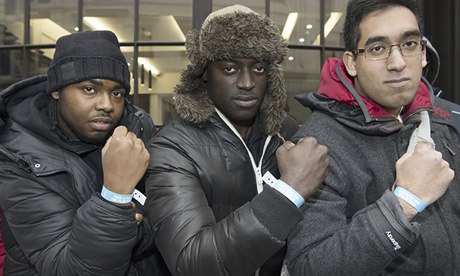
Launched on Friday in the UK and Australia, Sony's PlayStation 4 is the final video game console to enter the fray in the current war for the space beneath our TV sets.
This sleek black system, engineered in Japan but designed by an American, Mark Cerny (a game designer who cut his teeth at Atari around the time Apple's founder Steve Jobs worked there), goes head to head with Microsoft's Xbox One, which launched last week and sold a million units in 24 hours. Both consoles are super-computers that can play Blu-Ray discs and the latest high-definition, online-enabled video games, as well as acting as conduits to a host of other music, film and televisual services. In the Xbox One's case, this includes a camera-enabled fitness program.
The battle to "own" our living rooms has been waged between the two tech giants since 2001, when Microsoft entered the video game market with the first Xbox to compete against Sony's PlayStation 2.
Nintendo, with its enormously successful Wii (and less successful follow-up, the Wii U), which emphasises gimmicks such as motion-control and a second screen over processing power, stepped out of the technological arms race that has defined the console business since the early 1980s, leaving Sony and Microsoft to duke it out this Christmas as they court older players, particularly men in their 20s and 30s.
It's a high-stakes war. Video games have been the most profitable medium across the entertainment industries for decades. Even in the early 1990s Nintendo generated more annual profits than all the American film studios combined. In 2012, the traditional video game market boasted revenues of £35.5bn, excluding smartphone, tablet and Facebook games. Since the first PlayStation launched in 1994, Sony has sold approximately 350m consoles – roughly equivalent to the total number of iPods sold by Apple up to the end of 2012.
Culturally too, video games are slowly emerging from the shadow of the long-held view that theyare children's playthings. In August a New York Times article argued that, due to their ubiquity, "these days, writing about video games feels more important than writing about politics".
The philosopher Slavoj Žižek has a Call of Duty: Black Ops poster on his apartment wall, while novelists John Lanchester and Will Self have written about video games in the London Review of Books. Mark DeLoura, the White House's senior adviser for digital media, has held managerial positions at Sony and Nintendo, and advises Barack Obama on the potential role of games.
Despite this, the role of the traditional console is in question. The stratospheric rise of smartphones and tablets has vastly broadened the audience of "gamers", even if many do not see themselves that way. Downloadable games such as Angry Birds and Minecraft, which can be played on mobile phones and basic PCs, are now a major part of the industry. In April, Angry Birds' developer, Rovio, estimated its games had been downloaded 1.7bn times.
Jack Tretton, the president of Sony Computer Entertainment America, has no fear the games console will decline. He says he has managed to "ride the 'last console'" wave for 27 years. "There's a reason the console came about. [People like] sitting in front of a big-screen TV on a couch with [their] friends."
Early sales figures support his claim. PlayStation 4's US launch was a resounding success: more than a million consoles were sold in its first week, a feat Sony hopes to repeat in Europe and Australia.

